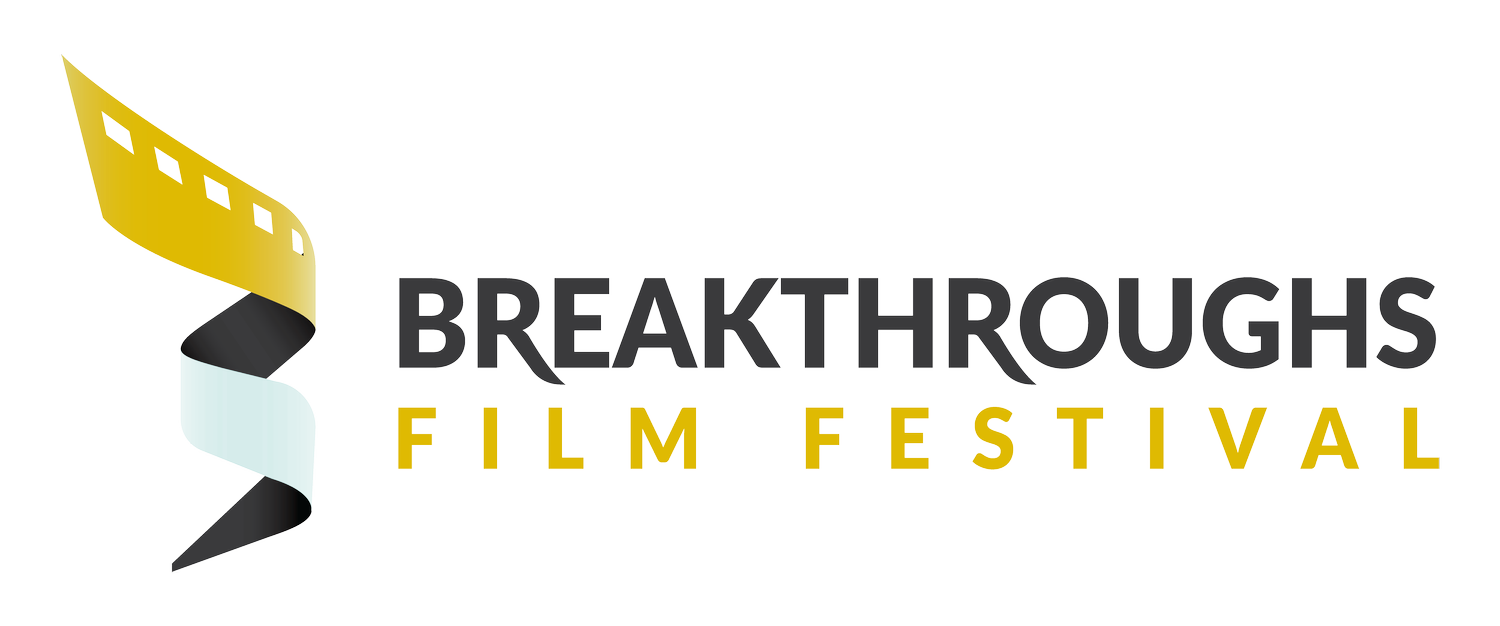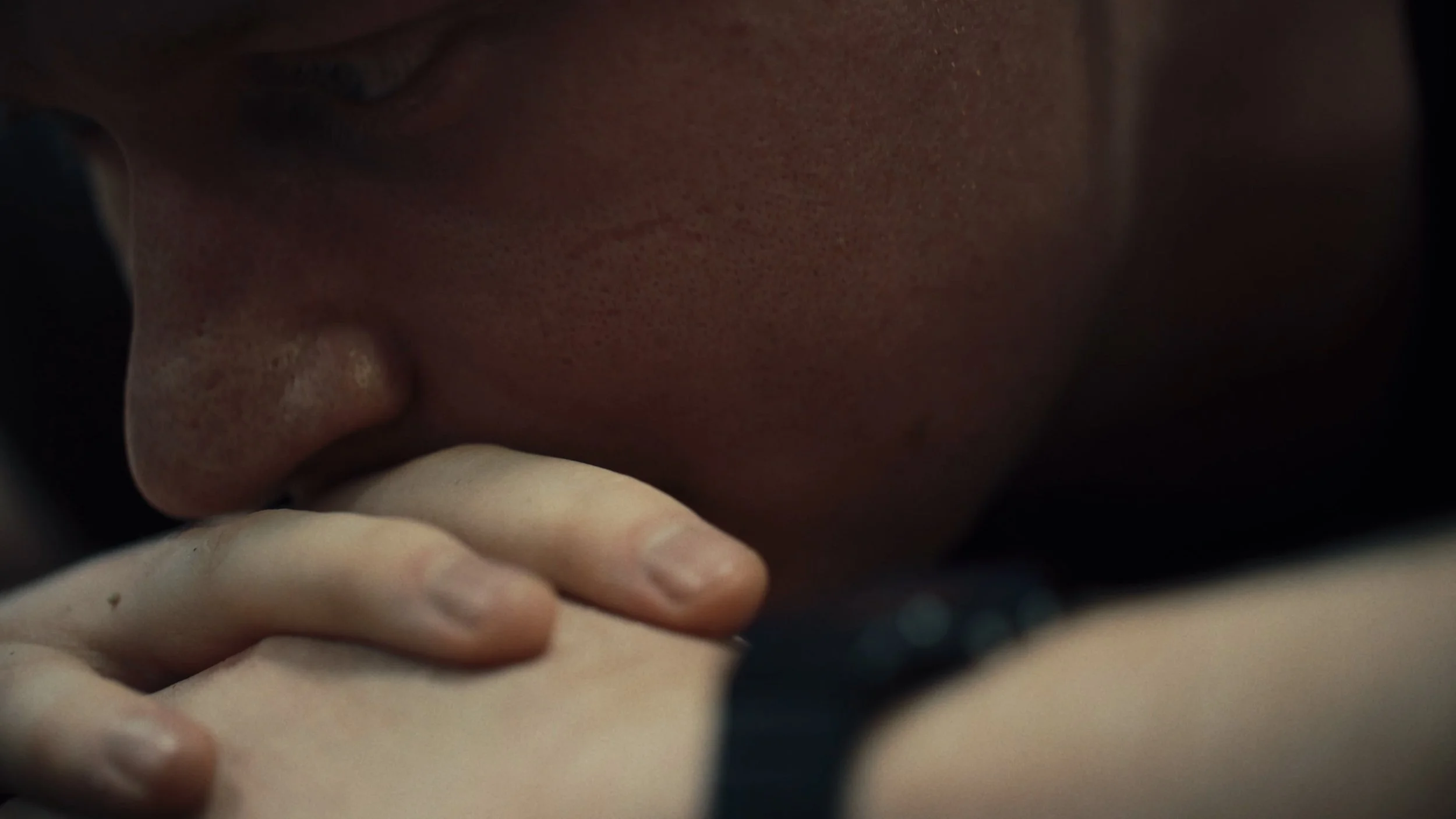LUCY CAMERON is a Canadian producer and director working in nonfiction.
What question is not asked of you during these types of interviews that you think that people should ask you about you and your work to get to know you and your work better?
One thing that I like to know about other filmmakers, to better understand their work, which maybe would apply as an answer to this question is what interests you outside of your filmmaking practice? What life, work experiences do you bring to your work beyond filmmaking and your history in this industry? Artists tend to do the same kind of work over and over, so what kind of archetypal is that for you?
Can you answer that question in the way you laid out?
On a larger scale, I'm really interested thematically in institutions of power, and the way that individuals find themselves navigating them, and the places where people find a kind of hope and try to carve out a place for themselves as individuals within these institutions of power. The way that those systems can sometimes – I don't want to be too negative – but erode a person, or challenge them or take them to a breaking point, which is what Basic Training is about. Those are themes that I find myself drawn to in general.
Still from Basic Training
Besides representation, besides having female voices behind the screen, why film?
When I started working in film, I don't know, ten plus years ago, I initially thought that I wanted to be a writer. I never actually intended to go into documentary, but I was always really interested in social justice issues, but also in real people. I always found real people, real characters and real conflicts to be more compelling to me than fictional characters, just the kind of unevenness and inconsistencies and the kind of rawness that comes with real life or even the mundaneness. I find it as a storyteller to be like a really compelling ground. I'm interested in combining elements of fiction and nonfiction. I'm developing a scripted project right now, for example, that's informed by the performer's life. I feel like I could spend my whole life just listening to people and their stories.
So in basic training, what were the systems that you were trying to address and why did you want to address those systems?
When I first met Brandon and he told me the story that resulted in this short film, it was a three hour long conversation. There's so much in the story that didn't make it into the film. The interlocking systems of faith, coming from a conservative religious background, of ideals of masculinity that young men deal with, especially when you're figuring out who you are in the world, what you want to do with your life at 17, and, of course, the Canadian Armed Forces. Those three forces intersected in a particular young man's life, and I wanted to explore these systems of power.
Still from Basic Training
Let's say we were asking you to do a promo for Basic Training to sell the film in 30 seconds. How would you do it?
Basic Training is the true story of a young man who thought that he saw a path for himself. Over the course of a few days, his world turned upside down in ways that he could never have foreseen.
What are the filmmakers who have inspired you?
That's so hard. Can I speak in more general terms? I draw a lot of inspiration from indie filmmakers of the 90s, like Canadian and American. I love a film that seems kind of even a bit weird. You’re not necessarily sure where it's going to go, and you can tell that it kind of came together just around a vision and not a ton of resources necessarily.
I like American indie filmmakers like Kelly Reichardt and, on the Canadian side, Don McKellar, his film Last Night was a big one for me. Peter Mettler’s Picture of Light. There are a bunch of European filmmakers that I love as well, like Céline Sciamma, Varda, Angela Schanelec, Thomas Vinterberg, the list kind of goes on and on.
I love an indie film that looks like it was really made with a lot of heart and very cleverly deployed resources. It isn't overproduced. Sometimes big movies seem like they've been so digested by so many different people and market interests.
Do you find yourself referencing those filmmakers that have inspired you?
When I watch more quiet films, Kelly Reichardt's films for example, I see the possibilities of spending time in quiet moments with characters that can be really compelling. I want to be respectful of audiences and not make work that's boring, but I think that you can make understated, character driven work that doesn't need a ton of bells and whistles or an enormous amount of plot to be moving.
Sometimes, directors encounter a conflict between making a living from your art and actually staying true to your art. How do you navigate this, if it’s something you have experienced?
Making your own art and also trying to make a living in the arts, sometimes can be in conflict especially in terms of like a person's time and like their own resources. I've been really fortunate to receive support from arts councils for my work, which is great, but also support from community. You meet so many wonderful people that are happy to collaborate with you and that you might want to also support them in their work. It's nice to have that kind of network that you built through work that actually pays you; one would hope you can also use it for passion projects on the side. I've also been really fortunate to work for and with filmmakers that I really admire, who have been mentors and always supported me to do my own thing.
Still from Basic Training
If you had advice for an emerging filmmaker, what would it be?
I would say, don't be afraid to make mistakes or something that is bad. Don't worry too much about who's going to be watching your work or what kind of cultural climate it's emerging into, like what festivals might be looking for. You can only make something that really is meaningful to you and hopefully people will connect with it. Don't worry about making stuff that sucks because you'll make stuff and you won't be happy with it, and you'll make other things and you will be happy with it. Just keep going.
Secondly, the value of community is so huge. I don't just mean like, oh, my friend is an amazing DP and they're also going to shoot my film. That's great. But in your wider community, people who may not work in film or even in the arts, they stimulate you intellectually or support your process in other ways.
What's next for you in your career?
I mentioned I'm working on a scripted project, which I'm really enjoying with a friend. She is a performer and I've never really done anything scripted before, so it's a little bit of a hybrid short that we're working on. Then I'm developing a doc about the kind of boom and bust of a small town that was built around a resource-based economy in BC, where I’m from. I find BC to be creatively rich. Whenever I go out there, I feel, maybe it's just something about being in nature, but there's more space to have ideas and it's obviously so visually rich. Then, another project with a friend who is an investigative journalist, building off some of their work. Little things simmering along outside of my day job.
The kinds of documentaries that I think are the best done are things that deal with issues that are very hot and people have very closely held views about. But it's not like a polemic. It's not “this is good and this is bad.” Maybe here's a character who's struggling with these things, and their reasons for struggling with them are their own and they're valid.
Interview by Breakthroughs Board Member Sunita Miya-Muganzar
*This article has been edited for clarity




